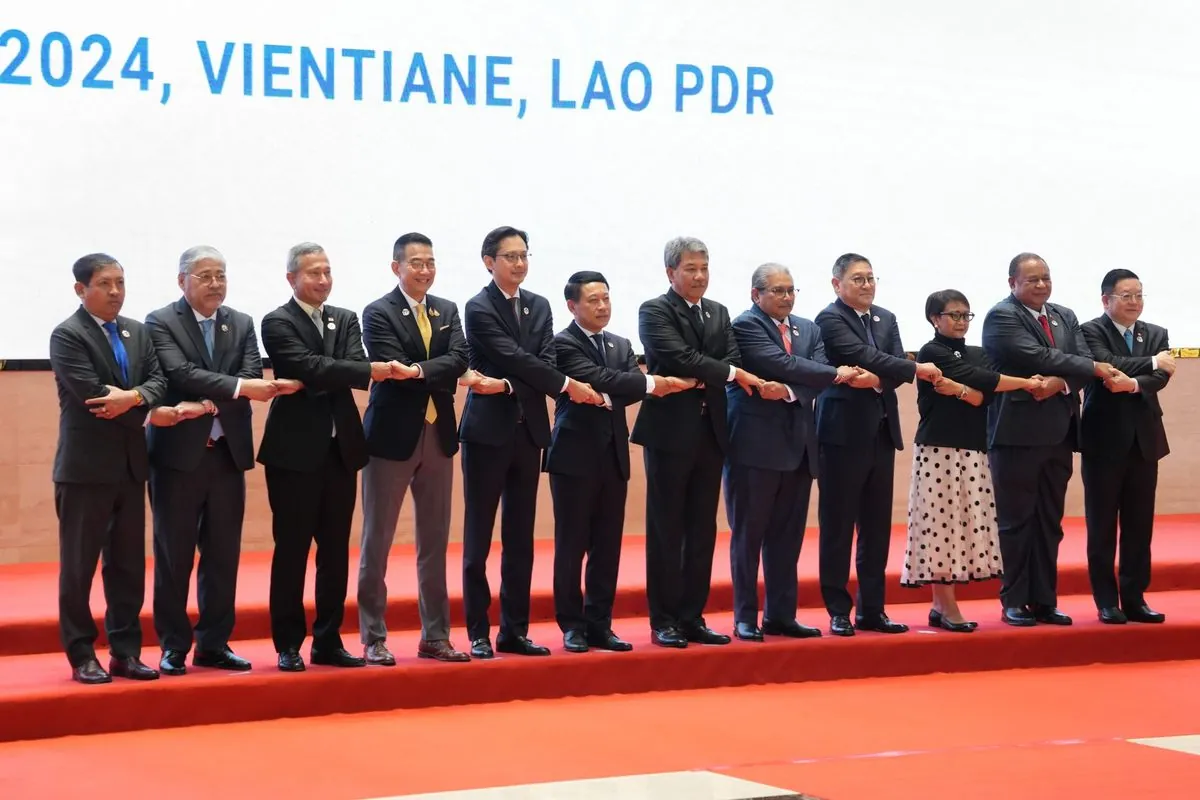As ASEAN leaders convene in Vientiane, Laos, for their biannual summit, the 57-year-old regional bloc faces significant challenges to its unity and effectiveness. The ongoing civil conflict in Myanmar and escalating tensions in the South China Sea are testing the organization's ability to maintain cohesion and address complex regional issues.
Founded in 1967, the Association of Southeast Asian Nations has long been a cornerstone of regional cooperation, fostering economic growth and cultural development among its ten member states. However, recent events have called into question the bloc's capacity to respond effectively to pressing challenges.
The Myanmar crisis, which began with a military coup in early 2021, has proven particularly intractable. ASEAN's peace initiative, known as the "Five Point Consensus," has made little progress in the three and a half years since its inception. Instead, violence has escalated, with an armed resistance movement emerging to challenge the military junta.
Under the chairmanship of Laos, ASEAN has shifted its approach to the Myanmar issue, expanding the peace process to include neighboring countries such as China and India. This change in strategy aims to create more space for dialogue, but critics argue it may reduce pressure on the Myanmar military to engage in meaningful negotiations.
"It creates more space and less pressure for the Myanmar military."
The South China Sea dispute presents another significant challenge to ASEAN's unity. Negotiations on a code of conduct for the strategic waterway, initiated seven years ago, have progressed at a glacial pace. Recent confrontations between China and ASEAN members Philippines and Vietnam have heightened tensions and underscored the urgency of reaching a binding agreement.
ASEAN's principle of consensus and non-interference in member states' internal affairs, while fundamental to its operations, has at times hindered its ability to address complex regional issues promptly. This has led some observers to question the organization's relevance in an increasingly volatile geopolitical landscape.
Despite these challenges, ASEAN continues to play a crucial role in regional diplomacy. The upcoming summits in Laos will bring together leaders and top diplomats from major powers, including the United States, Japan, South Korea, China, and Russia, providing a platform for dialogue on pressing regional and global issues.
As ASEAN navigates these turbulent waters, it must find ways to balance its founding principles with the need for more effective action. The organization's ability to adapt and respond to emerging challenges will be crucial in maintaining its central role in Southeast Asian affairs and ensuring the continued prosperity and stability of its more than 685 million citizens.
The outcomes of the Laos summits may provide insights into ASEAN's future direction and its capacity to address the complex issues facing the region. As the bloc approaches its sixth decade, its resilience and adaptability will be key to preserving the "One Vision, One Identity, One Community" that has long been its guiding principle.
